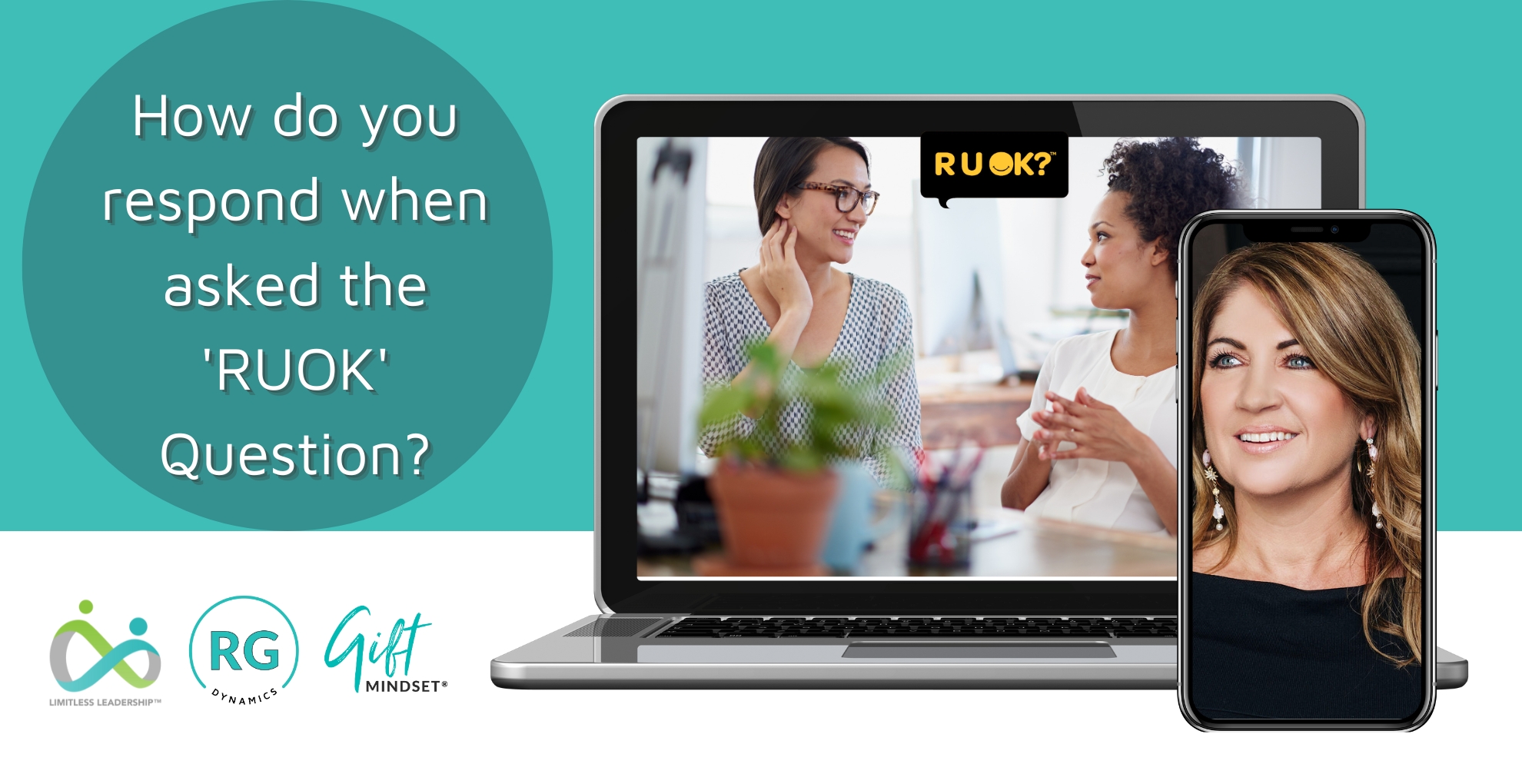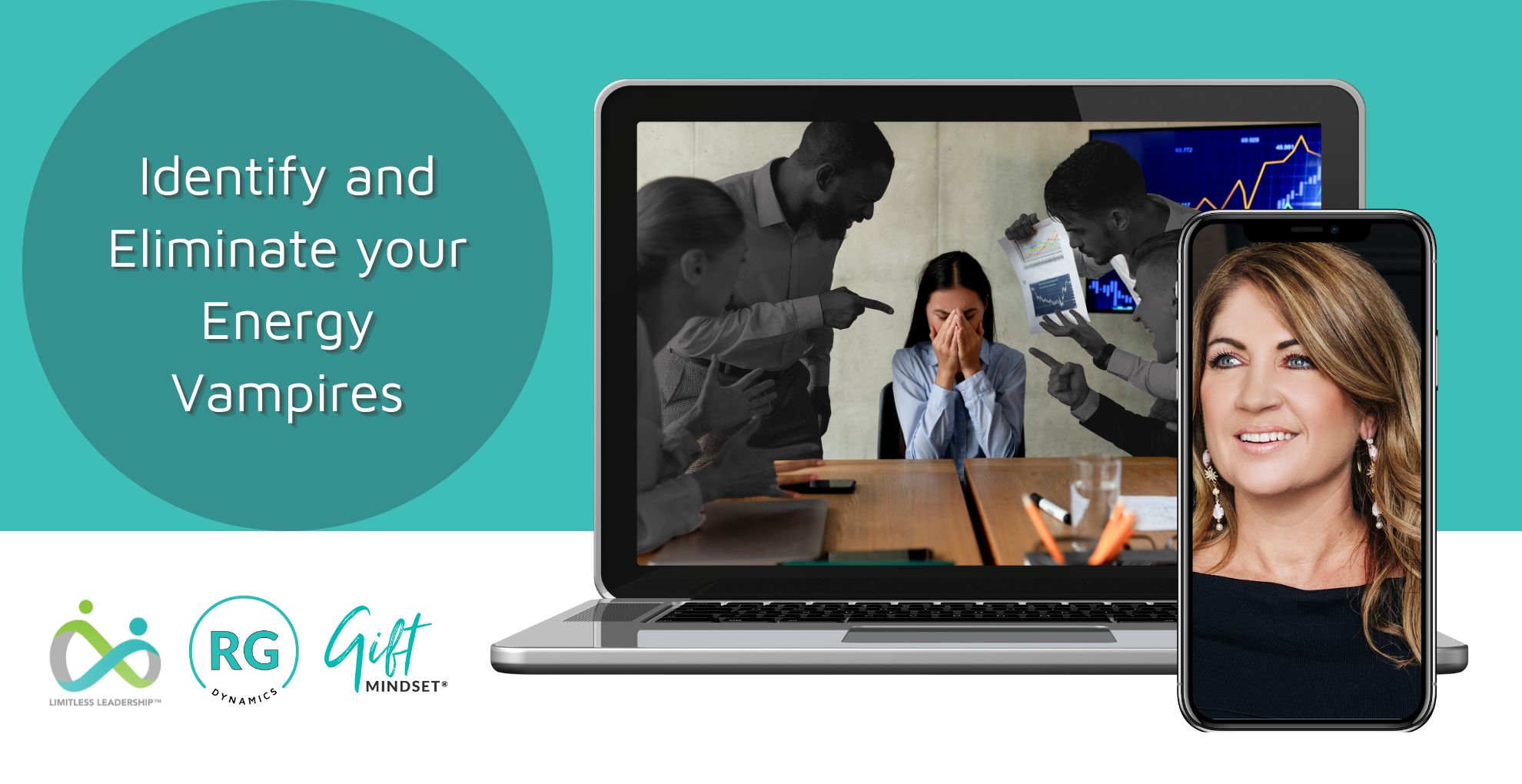September 14 is RUOK Day!
For me, I believe we should be checking in with others and ourselves every day.
The Australian Bureau of Statistics shows that over two in five Australians aged 16-85 years (43.7% or 8.6 million people) had experienced a mental disorder at some time in their life, and anxiety was the most common group of 12-month mental disorders (16.8% or 3.3 million people).
Burnout, overwhelm, anxiety, and poor mental health can affect our wellbeing and life in every area. These are all things that can sometimes not be visibly seen, and therefore, we need to reach out to others and be open when others reach out to us.
Being a natural “giver’ in my work and home life, it’s sometimes hard to ask for help, let alone be open and sharing with where I’m at. Recently, I had to learn the hard way. I was feeling extremely overwhelmed and hit with a health issue, and it was only when a close friend kept on my back on how I was really feeling that I broke down in uncontrollable tears and shared what was going on. For two days, I felt shocking, and then I pulled myself together and felt more grounded and calm than I had in a long time.
Sharing how we are feeling doesn't always cure what’s going on, but connection is a human need and having support and care from others counts for a lot.
What I find when checking in with many people, both in and out of the workplace, is that sometimes the response to the question “Are you OK?” can be a bit vanilla with responses like “I’m OK, I guess”, “Yeah, I’m hanging in there”, or the most common one “, I’m not bad, thanks”.
It’s too easy to accept those responses, and if you are on the receiving end, it’s just as easy to have an automated answer, but is that really working for you?
There is a lot of focus on asking, “Are you OK?” but not much focus on how we could or should respond to make the most of this kind of check in from others.
When someone asks if you are okay or how you are really doing, you have a few options for how to respond, depending on your comfort level and the relationship with the person asking. If you are suffering in any way and someone asks if you are okay, it can be challenging to know how to respond.
Here are a few ideas:
Say thank you: Always say thank you for asking: It doesn’t matter how you choose to respond; I believe it’s essential to acknowledge their concern. You can say something like, “Thanks for caring about me. It means a lot.”
Ask for support: If you feel open and comfortable seeking help from the person asking, you can let them know what you need. An example could be, “Thanks, I really appreciate your concern. Right now, I could use someone to talk to and a bit of support.”
Be open and honest: If you feel comfortable sharing, you can be open and tell them how you're feeling. You might say something like, “I appreciate you asking; thank you. I've been feeling a bit down lately, but I'm trying to work through it.”
Express gratitude: People reach out because they care and usually have good intentions. If you don't want to share your current mental state or whatever it is that is going on, you can still express gratitude for their concern. For example, you could say, “I appreciate your concern. It means a lot to me that you asked.”
Engage a professional: When you feel comfortable doing so, you can always mention that you're seeking support from a mental health professional. You could say, “I'm working with a therapist to help me through this difficult time.”
Deflect with empathy: Sometimes, you may not be open or ready to talk about your mental well-being. This is where you have every right to deflect the question. Make sure your delivery is polite and authentic. You might say something like, “I'm okay, thank you. How about you? How's everything going on your end?”
Find someone you trust and seek their support: If you feel like you need someone to talk to, consider reaching out to a friend, family member, or a professional you trust. You can tell the person who asked that you appreciate their concern and have someone you're comfortable talking to.
Make your boundaries clear: Boundaries are simply rules around what and what isn’t okay. If the person asking is not someone you want to discuss your well-being with, you need to set boundaries. You could say, “I prefer not to discuss my state right now, but I really do appreciate your checking in.”
I will say I am not an expert at this, but over the years, I’ve come to realise I always support others more than I do myself. This is not sustainable. We all need support in different ways and from different people. When people check in, it’s almost an insult to brush them off when all they are doing or offering is support.
We need to remember that it's essential to prioritise our well-being and comfort when responding to such questions. Whenever you feel overwhelmed or need support, don't hesitate to reach out to someone you trust or a professional. Our overall health is essential; seeking help when needed is a sign of strength, not weakness.
Taking care of your mental health is a non-negotiable, and seeking help is a sign of strength and self-care.
Reach out to me if you need a chat or any support.
Lead and live limitlessly.





